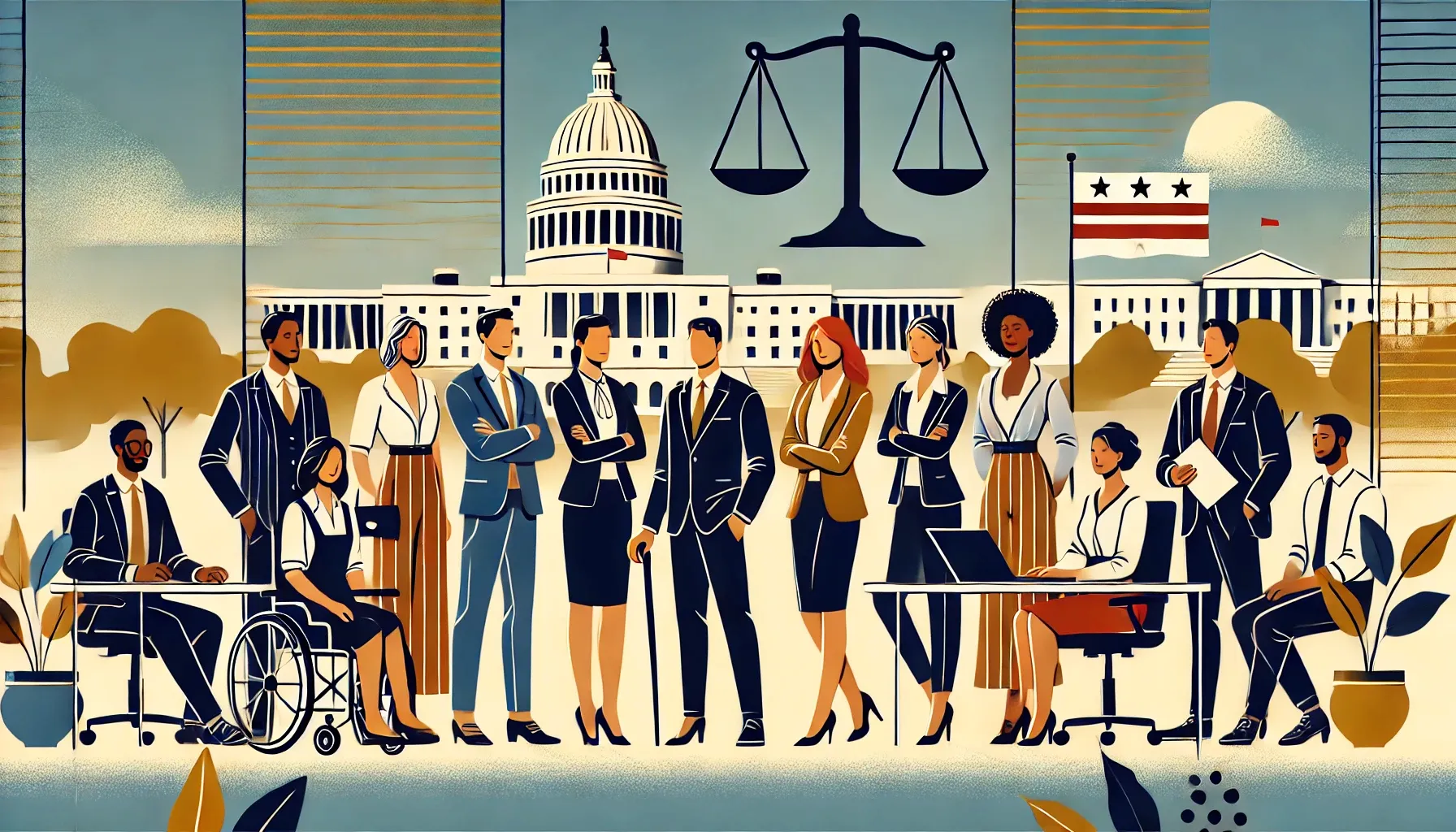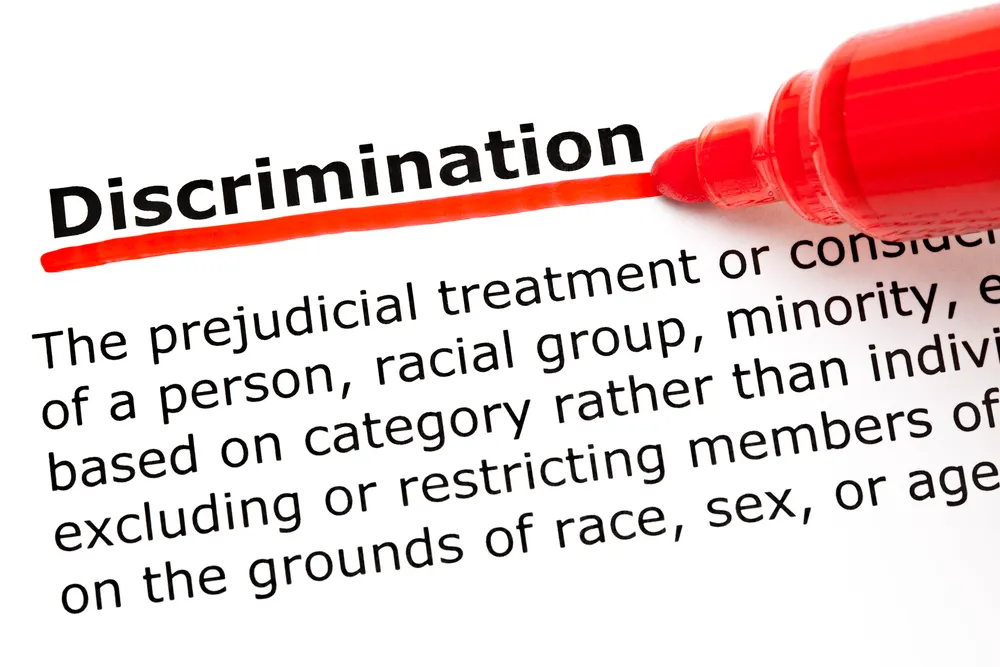Understanding Your Rights: The District of Columbia Human Rights Act and Workplace Protections

Have you ever felt unfairly treated at work because of who you are? Maybe it’s your race, your gender, or even your political beliefs. In Washington, D.C., there’s a powerful law designed to protect you from such discrimination: the District of Columbia Human Rights Act, or DCHRA for short. This act is a cornerstone of workplace equality in the nation’s capital, ensuring that everyone has the right to work in an environment free from discrimination and harassment.
In this blog post, we’ll explore the details of the DCHRA’s employment protections, share realistic scenarios where these protections come into play, and explain why documenting incidents of discrimination is so important. We’ll also introduce a tool, WorkplaceWitness.Ai, that can help you record workplace issues securely and effectively. Whether you’re a professional in D.C. or just curious about workplace discrimination laws, this guide will help you understand your rights and how to protect them.
What is the District of Columbia Human Rights Act?
The DCHRA, enacted in 1977, is one of the most comprehensive, and plaintiff friendly, anti-discrimination laws in the United States. It prohibits discrimination in various areas, including employment, housing, education, and public accommodations. For employees, the DCHRA ensures that employers cannot make adverse decisions, such as hiring, firing, or promoting, based on certain personal characteristics. Unlike federal laws like Title VII, which apply only to employers with 15 or more employees, the DCHRA covers employers with just one employee, making it a vital tool for workers in D.C.
The law is enforced by the District of Columbia Office of Human Rights (DC OHR), which investigates complaints and works to resolve disputes. The DCHRA also allows employees to file claims directly in D.C. Superior Court, offering flexibility compared to federal laws that often require administrative steps first.
The Scope of DCHRA Employment Protections
The DCHRA protects employees from discrimination and harassment based on 23 protected traits. These include well-known categories like race, color, religion, national origin, sex, age, and disability, but also extend to less common ones like:
- Sexual Orientation: Protects individuals based on their romantic or sexual attraction.
- Gender Identity and Expression: Covers a person’s gender-related identity or appearance, regardless of their assigned sex at birth.
- Political Affiliation: Safeguards employees from discrimination due to their political beliefs or party membership.
- Personal Appearance: Includes hairstyle, tattoos, or body size, subject to reasonable business standards.
- Family Responsibilities: Protects those supporting dependents, such as children or parents.
- Homeless Status: Ensures individuals experiencing homelessness are not discriminated against.
- Status as a Victim of Domestic Violence: Covers victims or their family members.
This extensive list makes the DCHRA one of the broadest workplace discrimination laws in the country. Additionally, the DCHRA protects against retaliation, meaning employers cannot punish employees for reporting discrimination or participating in investigations.
| Protected Trait | Definition |
|---|---|
| Race | Classification based on ancestry, ethnicity, or physical traits |
| Gender Identity & Expression | Gender-related identity or appearance, regardless of assigned sex at birth |
| Sexual Orientation | Romantic or sexual attraction to others |
| Disability | Physical or mental impairment limiting major life activities |
| Political Affiliation | Belonging to or endorsing a political party |
| Personal Appearance | Outward appearance, including hairstyle or tattoos, subject to business needs |
| Family Responsibilities | Supporting dependents, such as children or parents |
| Homeless Status | Lacking a fixed, regular nighttime residence |
The DCHRA also covers independent contractors and unpaid interns, expanding its reach beyond traditional employees. Recent amendments, like the Human Rights Enhancement Amendment Act of 2022, have further strengthened protections by redefining harassment and including new groups.
Real-World Scenarios: DCHRA Violations in the Workplace
To illustrate how the DCHRA protects employees, let’s explore some fictional but realistic scenarios that could occur in D.C. workplaces.
Scenario 1: Discrimination Based on Sexual Orientation
Alex, a marketing professional, has worked at a D.C. firm for three years, earning stellar reviews. When a senior role opens, Alex applies, confident in their qualifications. However, the hiring manager, who has made negative comments about Alex’s sexual orientation, promotes a less experienced straight colleague instead. This decision could violate the DCHRA, which prohibits discrimination based on sexual orientation. Alex could file a complaint with the DC OHR or pursue legal action.
Scenario 2: Failure to Accommodate a Disability
Sarah, who uses a wheelchair, joins a tech company in D.C. She requests accommodations like a ramp and an adjustable desk, but the employer refuses, claiming it’s too costly. This makes it difficult for Sarah to perform her job. The DCHRA requires employers to provide reasonable accommodations for disabilities unless it causes undue hardship, so this could be a violation.
Scenario 3: Harassment Based on Gender Identity
Taylor, a transgender employee, faces ongoing harassment from coworkers who make derogatory jokes about their gender identity. Despite reporting the behavior to HR, the company takes no action. The DCHRA protects against harassment that creates a hostile work environment, and the employer’s inaction could be grounds for a claim.
Scenario 4: Retaliation for Reporting Discrimination
Jordan notices their supervisor consistently overlooks employees of a certain race for promotions. After reporting this to HR, Jordan receives a sudden poor performance review and is demoted. This appears to be retaliation, which the DCHRA explicitly prohibits. Jordan could seek remedies through the DC OHR or court.
These scenarios highlight how the DCHRA addresses various forms of workplace discrimination and harassment. If you face similar issues, understanding your rights is the first step to taking action.
Why Documentation is Critical
If you experience discrimination or harassment, documenting every incident is essential. Detailed records can serve as evidence if you file a complaint with the District of Columbia Office of Human Rights or take legal action. Here’s what to include in your documentation:
- Dates, Times, and Locations: Note when and where each incident occurred.
- Individuals Involved: Record the names of those involved, including witnesses.
- Incident Details: Describe what happened, including any verbal or written communications.
- Your Actions: Document steps you took, like reporting to HR or discussing with a supervisor.
Keeping a journal or digital log ensures your records are organized and accessible. Documentation strengthens your case by providing a clear timeline and specific evidence, which is critical since DCHRA claims must be filed within one year of the incident.
How WorkplaceWitness.Ai Supports You
Documenting workplace issues can be challenging, especially in stressful situations. That’s where WorkplaceWitness.Ai comes in. This innovative tool is designed for individuals facing workplace harassment or discrimination, offering a secure platform to log incidents in real-time. Each entry is time-stamped and stored securely, creating a legally relevant record that can be invaluable for complaints or lawsuits.
With WorkplaceWitness.Ai, you can:
- Log Incidents Instantly: Record details as they happen to ensure accuracy.
- Attach Evidence: Upload emails, photos, or other relevant files.
- Access Securely: Retrieve your records from anywhere, protected by robust security.
- Share with Authorities: Provide documentation to legal counsel or the DC OHR when needed.
By using WorkplaceWitness.Ai, you’re taking a proactive step to protect your rights under the DCHRA. This tool empowers you to build a strong case, making it easier to seek justice and hold employers accountable.

Taking Action Under the DCHRA
If you believe your rights under the DCHRA have been violated, you have options. You can file a complaint with the DC OHR, which will investigate and attempt to resolve the issue. Alternatively, you can file a lawsuit directly in D.C. Superior Court, bypassing administrative steps for most claims. The DCHRA allows for remedies like reinstatement, back pay, compensatory damages, and attorney’s fees, with no cap on damages, unlike federal laws.
For D.C. government employees, you must contact an EEO counselor within 180 days of the incident before filing with the DC OHR. Regardless of your path, thorough documentation is key to a successful outcome.
Why the DCHRA Matters for D.C. Professionals
For professionals in Washington, D.C., the DCHRA is a critical safeguard against workplace discrimination. Its broad protections and flexible enforcement options make it a powerful tool compared to federal laws. Whether you’re in a corporate office, a nonprofit, or a small startup, the DCHRA ensures you can work without fear of unfair treatment based on who you are.
Understanding your rights under the DCHRA empowers you to recognize violations and take action. By documenting incidents and using tools like WorkplaceWitness.Ai, you can protect yourself and contribute to a fairer workplace for everyone.
Final Thoughts
The District of Columbia Human Rights Act stands as a beacon of workplace equality, offering robust protections for employees in D.C. By knowing your rights and documenting any violations, you can stand up against discrimination and harassment. Tools like WorkplaceWitness.Ai make it easier to keep accurate, secure records, giving you the confidence to pursue justice if needed.
You don’t have to face workplace discrimination alone. The DCHRA and the DC OHR are there to support you, and with the right documentation, you can hold employers accountable and create a more equitable workplace.
Stay Updated
Get the latest updates about workplace rights and our app launch.